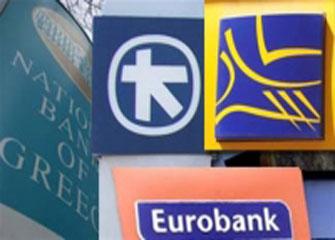European government-bond traders would be forgiven for thinking they’d stepped back in time to 2012.
Today’s selloff in Greek securities, the biggest since July of that year, triggered a schism in sovereign debt evocative of those days before European Central Bank President Mario Draghi pledged to do whatever it took to defend the euro.
Yields on 10-year securities from Europe’s most-indebted nations surged, led by Greece and sweeping up Portugal, Ireland and Italy. At the same time, benchmark yields in the so-called core, which includes Germany and France, tumbled to records as investors sought the safest assets.
The differing fortunes of Europe’s sovereigns echo their performance during the region’s debt crisis, when concern the currency bloc may splinter drove the yield gap, or spread, between German bonds and those of Greece, Ireland, Italy, Portugal and Spain to the widest since the euro started in 1999. Following Draghi’s pledge to hold the currency bloc together, accommodative policies from the ECB have largely boosted bonds across the region in unison.
“We’ve seen a tipping off the edge in risk sentiment,” said Lyn Graham-Taylor, a fixed-income strategist at Rabobank International in London. “Rather than what we’ve seen in the last few years, it’s what we used to see before that.”
Greece’s 10-year yield increased 82 basis points, or 0.82 percentage point, to 7.83 percent at 4:13 p.m. London time, the biggest increase since July 23, 2012. Draghi gave his speech, credited by an ECB lawyer this week as helping to save the euro, three days after that 199 basis-point spike in 2012.
The rate on similar-maturity Italian bonds increased nine basis points today, the most since June 10, to 2.39 percent, while that on Portuguese 10-year debt was 21 basis points higher at 3.28 percent.
Germany’s benchmark 10-year bund yield fell seven basis points to 0.77 percent after touching 0.719 percent, the lowest since Bloomberg started collecting the data in 1989. Yields on French 10-year bonds, put on watch for a possible downgrade by Fitch Ratings yesterday, tumbled as much as nine basis points to a record 1.112 percent.
Greek 10-year bonds yielded 706 basis points, or 7.06 percentage points, more than similar-maturity German debt today. The spread peaked at 42.4 percentage points in March 2012.



















